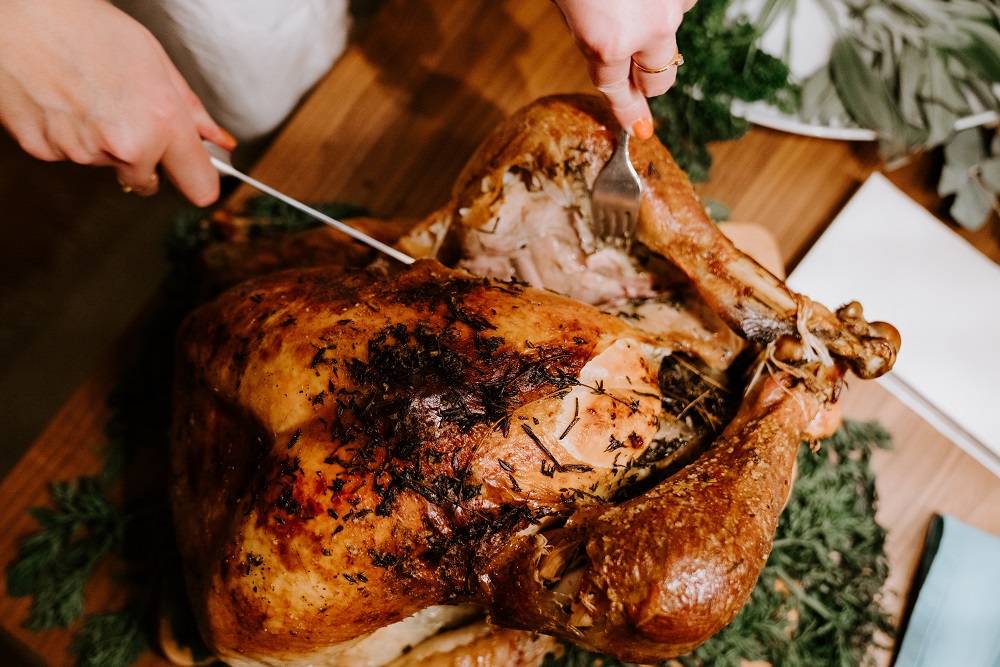As Thanksgiving approaches, the price of turkey has increased again, partly due to inflation that is impacting many other foods, but in the case of turkeys, part of the price pressure is apparently due to a dwindling supply caused by avian flu, a challenge that biotech is working to solve.
According to USA Today, the average price of a pound of whole frozen turkey is $1.46 in September, compared to $1.15 at this time last year, representing a 17% increase in the price of raw poultry. “Frozen bone-in breasts are easier to find and see at better values than the previous ad cycle. Cutlet and marinated tender offerings are limited; prices are steady to higher. Dark parts are viewed at a similar frequency to a week ago, although you will tend to pay a little more. Grinds are more active with 93% lean grabbing the largest portion of the limelight. Most of the ground values trend higher. The exception is specialty ground breast meat which is found at lower price levels. Deli items are more active which is attributed to a greater offering of smaller-sized self-service deli items,” the USDA says in a report.
As Bio.News has reported, a major driver behind rising food prices is climate change, causing extreme heat and drought, lower crop productivity, and the death of livestock.
The Environmental Protection Agency (EPA) has issued a warning about how climate change will affect food availability, agricultural productivity, and the way food is delivered. “Spikes in food prices after extreme events are expected to be more frequent in the future,” the EPA noted.
The impact of avian flu
Another factor is avian flu. More than 50 billion birds have been killed in the United States alone by the highly pathogenic H5N1 strain. According to USA Today, Iowa, a leading producer of turkeys, has lost more than 13 million birds.
With the use of gene editing, we can develop birds resistant to bird flu, (and pigs resistant to deadly disease, as well as cows that can withstand extreme heat).
But in order for us to be able to use this technology on the farm and in our food, regulatory approval pathways, and consumer education must catch up. Despite these hurdles, the animal biotech market is expected to grow rapidly in the coming years.




